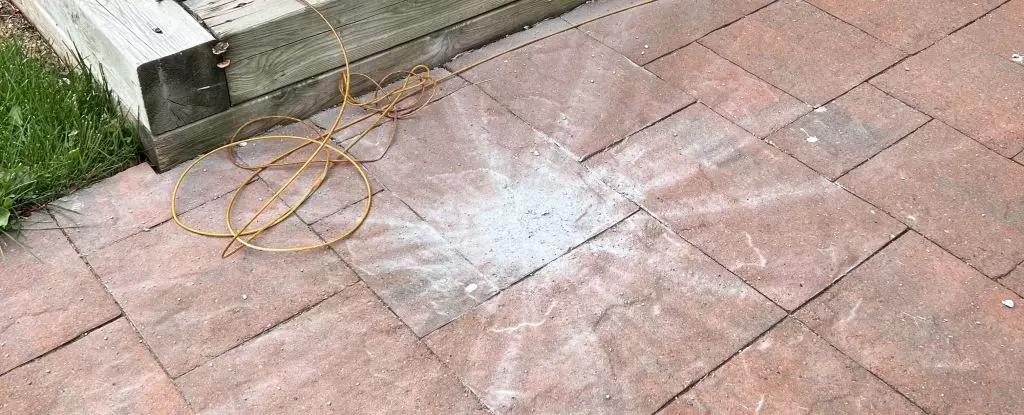In an age where smartphones and surveillance cameras are ubiquitous, it’s seemingly less surprising for an extraordinary cosmic event to be captured on video. However, the occurrence of a meteorite landing and being recorded, along with its sound, is indeed a rarity. The recent incident on Prince Edward Island in Canada defies such expectations, as local residents Joe Velaidum and Laura Kelly experienced a meteorite fall that may represent a landmark moment in celestial documentation. On July 2024, their Ring doorbell camera recorded not only the moment the meteorite collided with the Earth but also the impactful sound it made upon striking the pavement just inches from their front door. Geologist Chris Herd from the University of Alberta has examined the recovered remnants, positing that this incident may be the first-ever recording of both the visual and auditory aspects of a meteorite landing.
The circumstances surrounding this particular meteorite fall were fortuitous and may have gone unnoticed had it not been for the keen observations of Velaidum and Kelly. The couple was out walking their dogs when the spectacle occurred, unknowingly missing the chance to witness the extraordinary event in real-time. It was only when Kelly’s parents mentioned hearing a loud noise and suggested that what they discovered on the ground might be a meteorite that the duo thought to check their doorbell footage. Velaidum’s reflexive acknowledgment of the proximity of the event comes with an unsettling realization: he was mere moments away from potentially being struck by the celestial object. “It’s shocking to think I could have been right there,” he recounted, reflecting on the potentially catastrophic consequences.
The Journey of Meteorites
While it’s common for space debris to enter Earth’s atmosphere—an estimated 48.5 tons daily—most of these rocks burn up during entry, leaving just a fraction to touch down on Earth’s surface. Chunks that are large enough to create fireballs are rare, occurring only a few dozen times each year, and even fewer manage to survive the atmospheric entry without being obliterated. As Velaidum reviewed his Ring video footage and turned his attention to the fragments on the ground, he contacted Chris Herd to analyze the remnants. The investigation revealed a tiny crater, only 2 centimeters wide, marking the meteorite’s impact on their paved driveway.
The fragments identified from this exciting fall belong to the ordinary chondrite class, a prevalent type of meteorite that consists of non-metallic minerals dating back to the early Solar System. These samples are significant because they encapsulate the primordial materials that existed before planets formed, providing a snapshot of the ancient cosmic environment. Despite their commonality, ordinary chondrites represent nearly 90 percent of all recovered meteorites and are pivotal for scientific research. They can divulge critical insights regarding the dust that coalesced in the nascent stages of our Solar System, creating a direct connection to the celestial mechanics that shaped our planetary system.
The Rarity of Human Encounters with Meteorites
It’s easy for one to feel a tinge of envy at witnessing a moment that seems fated to be so rare. It stands to reason that meteorites can fall anywhere, but in reality, documented incidents of meteorites hitting individuals are vanishingly few. This rarity only amplifies the significance of the Charlottetown meteorite; it reminds us that while we share the Earth with celestial debris, the odds of directly experiencing such an event remain faint. For those who may feel left out of this cosmic lottery, there’s always the option of scavenging tiny specks of space dust that continually fall onto Earth—a somewhat less riveting yet equally fascinating quest.
The Charlottetown meteorite incident exemplifies the extraordinary intersection of everyday life and the mysteries of the cosmos. Coupled with the modern capability of technology to record and analyze such occurrences, it demonstrates humanity’s ongoing connection to the universe. Each meteorite carries stories from the dawn of our Solar System, and discoveries like these instill a deep sense of wonder. For now, those left desiring their own celestial encounter can take comfort in the perpetual rain of space dust and perhaps, with a little bit of luck, claim their own piece of the universe. Happy hunting thus becomes not just about looking for meteorites but appreciating the cosmic wonders lurking just above us.

